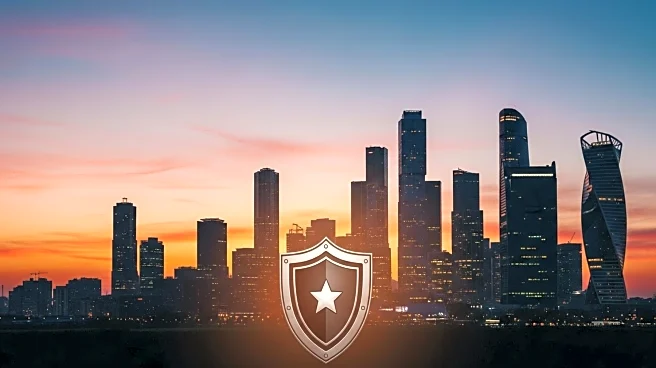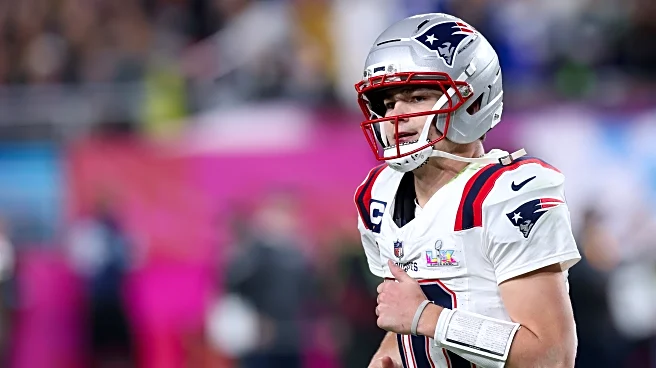What's Happening?
Chicago Mayor Brandon Johnson has signed an executive order aimed at resisting potential federal law enforcement actions threatened by President Trump. The order seeks to limit the power of federal officers and National Guard troops in Illinois, directing the city's law department to use legal mechanisms to counteract any federal plans. Johnson emphasized the importance of protecting Chicago residents from what he described as federal overreach. The order includes directives for the Chicago Police Department, prohibiting collaboration with military personnel on patrols or immigration enforcement. This move comes amid President Trump's deployment of federal forces to Washington, D.C., and threats to extend similar actions to other cities.
Why It's Important?
The executive order represents a significant pushback against federal intervention in local governance, highlighting tensions between city officials and the Trump administration. It underscores the broader debate over federal authority and local autonomy, particularly in matters of law enforcement and immigration. The order aims to safeguard civil liberties and prevent potential abuses of power, reflecting concerns about the militarization of police forces and the impact on community trust. The situation in Chicago could set a precedent for other cities facing similar threats, influencing national discussions on federalism and the balance of power.
What's Next?
Chicago's legal team is expected to prepare for potential court battles to uphold the executive order. Mayor Johnson has indicated readiness to use all available legal tools, including court challenges, to resist federal actions. The situation may escalate if President Trump proceeds with plans to deploy federal forces to Chicago, prompting further legal and political confrontations. Other cities may follow Chicago's lead, adopting similar measures to protect their residents and assert local control. The outcome of these efforts could shape future interactions between federal and local authorities.
Beyond the Headlines
The conflict between Chicago and the Trump administration highlights deeper issues of governance and civil rights. It raises questions about the role of federal forces in local policing and the implications for democratic accountability. The situation also reflects broader societal concerns about immigration enforcement and the treatment of marginalized communities. As cities navigate these challenges, the debate over federal intervention and local autonomy is likely to intensify, with long-term implications for US governance and civil liberties.










